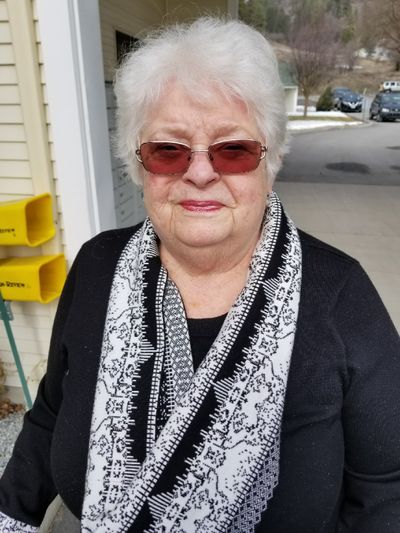Inland Northwest long-term care residents rely on ombudsman advocates, but more volunteers are needed

Judy Current shows up weekly to lend an ear at a rehabilitation and long-term care facility in Colville. For 20 years, she’s offered support there to the residents of Buena Vista Healthcare.
She enjoys the visits, while the residents’ histories come alive. And sometimes, Current gets to lend them a voice, speaking up for some residents who have concerns typically over minor issues such as noises or general questions.
She’s part of the Eastern Washington Long-Term Care Ombudsman Program, which is in dire need of new volunteers like her, because its ranks have shrunk significantly since the COVID-19 pandemic.
“I had been an occupational therapist at another facility,” said Current. “My husband found a flyer at the library about the program and said it sounds perfect for me, and it was.
“I’m interested in people, and through getting a relationship with them, I learn about their history and the history of the area. I’ve always wanted to help people if there are any concerns they have in the facility, or complaints. I see what I can do with their permission, if we can fix it. At the facility where I am, they’ve all been very minor.”
An ombudsman provides support for residents of skilled nursing homes, assisted-living facilities, enhanced services care sites and adult family homes in Spokane County and adjoining counties of Pend Oreille, Ferry, Stevens and Whitman. The volunteers also keep an eye out for inadequate nutrition, neglect and financial fraud.
SNAP, previously called Spokane Neighborhood Action Partners, runs the program that normally has between 36 and 42 ombudsman volunteers. As of March, it had 15 volunteers to cover the entire region. Some counties don’t have an ombudsman. Thirteen volunteers are in Spokane and one each in Stevens and Whitman.
“We’re at a fraction of what we’re normally used to,” said Aaron Riley, who heads up the program. A training for new volunteers runs May 1-5 but people must first register, interview and get background checks.
The thinner numbers can’t cover the more than 380 long-term care facilities in the five counties, “so that’s why volunteers are needed so urgently,” Riley added.
“Typically when I’ve got 36 to 40 volunteers, my priority is always to assign to skilled nursing facilities to try to get those covered, and right now, our skilled nursing coverage is not what I’d like it to be,” Riley said.
“My numbers for assisted-living and for adult family homes is even worse.”
A volunteer spends at least three to four hours a week in facilities, including visits to residents, providing information about community services and regulations and mediating issues. Riley said another way the role is typically described is being a problem-solver.
“We advocate for residents’ wishes and try to advocate for the residents’ rights,” he said. “It typically falls into two broad categories we call quality of care and quality of life.”
Another issue is that some residents in long-term care facilities don’t feel like they can advocate for themselves.
“A lot of times those residents feel powerless because by the time they get to long-term care, there’s a feeling that they’ve lost a lot of power in their life, so they’re reluctant to complain,” Riley said. “They often feel reluctant to complain because they feel the staff may retaliate – even though we know retaliation is illegal – but it doesn’t stop the residents from feeling that way.”
Current said she’s lately gone to her facility for four hours during one day a week, but it previously was in stints twice a week. During the pandemic, she called the residents.
The longest relationships with residents have lasted a decade or more, she said.
“I’ve noticed especially since the pandemic how much people need to be able to talk to someone, just a regular conversation, and paid staff doesn’t have time to sit around and just talk,” she said. “Sometimes, we just talk about family, things they’d like to do.”
Participants don’t incur any cost for ombudsman training or the background checks. The program is funded by federal and state dollars, in addition to grants and donations.